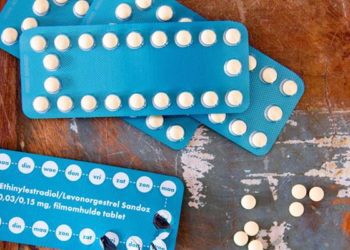Physical, physiological benefits of hormonal treatment in gender dysphoria
1. In a limited systematic review, hormonal therapy with gonadotropin-releasing hormone analogs (GnRHas) produced some suppression of secondary sexual function, with more success in promoting anticipated masculinization or feminization with the use of testosterone or estrogen, respectively.
2. Though no included studies examined the psychological effects of progestin, antiandrogens, or estrogen, GnRHas were associated with multiple positive psychological and cognitive benefits, while testosterone was associated with positive cognitive benefits, such as improved accuracy and reaction time.
Evidence Rating Level: 2 (Good)
Study Rundown: Hormonal treatment for adolescents with gender dysphoria – a syndrome of distress and functional impairment secondary to a mismatch of one’s gender identity and one’s assigned birth gender – has been a topic of growing interest in recent years. In this systematic review, researchers analyzed a number of previously published studies to assess the physical, psychological, and cognitive effects of hormonal therapy in this population. GnRHas were associated with effective suppression of endogenous sexual hormones, including gonadotropins, estradiol, and testosterone. This suppression manifest as decreased testicular size in transfemale patients and cessation of menses, though only after a withdrawal bleed, in transmale patients. Estrogen and testosterone were also associated with phenotypic feminization and masculinization, respectively, including breast enlargement in transfemales and voice lowering and body hair growth in transmales. GnRHas were associated with multiple positive psychological and cognitive benefits, such as improvement in global functioning, depression, and behavioral/emotional problems. Testosterone was associated with positive cognitive benefits, including improved accuracy and reaction time. The review was limited primarily by the fact that only a few, small studies have been conducted in this population, with less attention paid to the cognitive and psychological effects of hormone therapy. Still, these findings demonstrate multiple areas of benefit which warrant further investigation.
Click here to read the original article, published today in Pediatrics
Relevant Reading: Lives in a chiaroscuro. Should we suspend the puberty of children with gender identity disorder?
In-Depth [systematic review]: Investigators reviewed studies published from January 1, 1946 to June 10, 2017 which evaluated young adults (under age 25) given hormonal therapy for gender dysphoria. Hormonal treatments included GnRHas, gender-affirming/cross-sex hormones (e.g. testosterone for transmales and estrogen for transfemales), antiandrogens, and progestins. Investigators used Medline (Ovid) and Embase (Ovid) databases and ultimately included 13 studies with varying sample sizes, ranging from 21 at the smallest to 201 at the largest. In 38.5% of studies, there were fewer than 50 participants. Studies were included based on key features of their physical, psychological, or cognitive assessment of the effects of hormonal therapy, including sex hormones levels, body composition, growth, secondary sexual characteristics, executive function, global function, depression, anger, anxiety, behavioral or emotional problems, and relative gender dysphoria and body image. Side effects of hormonal therapy were also assessed, including hot flashes, fatigue, acne, hunger, emotionality, bone density, blood pressure, and liver enzymes. Overall, GnRHas were associated with successful suppression of secondary sexual characteristics, while estrogen and testosterone were associated with feminization and masculinization, respectively. GnRHas were also associated with positive psychological and cognitive outcomes, while testosterone was associated primarily with only positive cognitive outcomes.
Image: PD
©2018 2 Minute Medicine, Inc. All rights reserved. No works may be reproduced without expressed written consent from 2 Minute Medicine, Inc. Inquire about licensing here. No article should be construed as medical advice and is not intended as such by the authors or by 2 Minute Medicine, Inc.







